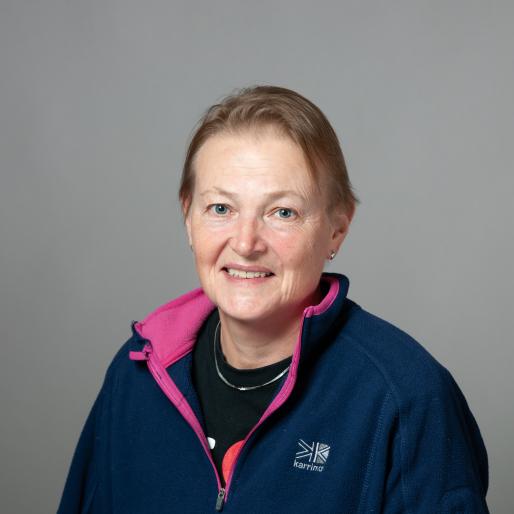The big picture: using wildflower strips for pest control
A new project will work with the food industry to develop and market high fibre white bread, using wheat developed by Rothamsted specifically for the UK’s climate.
The interdisciplinary project team is led by the University of Reading, who will look at the supply chain for high fibre wheat production and the impact on the health of UK consumers.
Consumer acceptability will also be explored including taste testing of high fibre white bread in a major supermarket within three years.
Rothamsted, together with the John Innes Centre, had previously identified wheat lines with up to double the normal content of fibre in white flour and are developing novel high fibre types of wheat for UK farmers in collaboration with commercial wheat breeders.
When the high fibre wheat lines were first announced in 2020, it was hoped they could be in the shops withing five years – and despite Covid-related delays, the team are still hopeful we could see this milestone achieved.
Professor Peter Shewry, who oversaw development of the high fibre wheat said: ”This is an important step in our long-term aim of improving the health of UK consumers by developing high quality staple foods at affordable prices”.
The white flour also has the potential to be used in other baked goods such as croissants, naan breads and pizzas, which will also be investigated as part of the project.
Although fibre-enhanced “white” breads are currently available in the UK, most are actually made from wholemeal flours of wheat varieties which cannot be grown here due to the climate. They therefore have higher cost and lower consumer acceptability than conventional white bread.
The project will use newly developed types of wheat with high fibre in white flour, which can be grown in the UK, to develop new products to increase UK fibre consumption.
This is important because 90% of the UK population do not consume enough fibre, with an average intake of 18g per day compared to a recommended intake of 30g per day.
The project has been developed in collaboration with a major supermarket chain, their associated millers and bakers and a range of industry partners involved in wheat production and will identify what changes to the UK wheat farm-to-plate supply chain is needed to deliver high fibre white loaf bread to consumers.
The project is one of 11 receiving a total of £14 million in funding from UKRI’s Transforming UK Food Systems Strategic Priority Fund programme.
Dr Marcus Tindall, Associate Professor of Mathematical Biology at the University of Reading and lead on the new project said:
“We are very grateful to UKRI for the award of this funding. It provides a real opportunity to increase the daily fibre intake of people across the UK, given the wide consumption of white bread.
“Our team are excited to be working closely with industry to develop the optimal high fibre white loaf, whilst utilising predictive mathematical modelling to inform the transformations needed within the UK wheat chain to deliver high fibre white bread to consumers."

Botanist

Biochemist
Rothamsted Research is the longest-running agricultural research institute in the world. We work from gene to field with a proud history of ground-breaking
discoveries in areas as diverse as crop management, statistical interpretation and soil health. Our founders, in 1843, were the pioneers of modern
agriculture, and we are known for our imaginative science and our collaborative approach to developing innovative farm practice.
Through independent research, we make significant contributions to improving agri-food systems in the UK and internationally, with
economic impact estimated to exceed £3 bn in annual contribution to the UK economy. Our strength lies in our systems approach, which combines strategic research,
interdisciplinary teams and multiple partnerships.
Rothamsted is home to three unique National Bioscience Research Infrastructures which are open to researchers from all over the world:
The Long-Term Experiments,
Rothamsted Insect Survey and the
North Wyke Farm Platform.
We are strategically funded by the Biotechnology and Biological Sciences Research Council (BBSRC), with additional support from other national and
international funding streams, and from industry. We are also supported by the Lawes Agricultural Trust (LAT).
The Biotechnology and Biological Sciences Research Council is part of UK Research and Innovation, a non-departmental public body funded by a grant-in-aid
from the UK government.
BBSRC invests to push back the frontiers of biology and deliver a healthy, prosperous and sustainable future. Through our investments, we build and support a vibrant,
dynamic and inclusive community which delivers ground-breaking discoveries and develops bio-based solutions that contribute to tackling global challenges,
such as sustainable food production, climate change, and healthy ageing.
As part of UK Research and Innovation (UKRI), we not only play a pivotal role in fostering connections that enable the UK’s world-class research and innovation system
to flourish – we also have a responsibility to enable the creation of a research culture that is diverse, resilient, and engaged.
BBSRC proudly forges interdisciplinary collaborations where excellent bioscience has a fundamental role. We pioneer approaches that enhance the equality, diversity,
and inclusion of talent by investing in people, infrastructure, technologies, and partnerships on a global scale.
The Lawes Agricultural Trust, established in 1889 by Sir John Bennet Lawes, supports Rothamsted Research’s national and international agricultural science through the provision of land, facilities and funding. LAT, a charitable trust, owns the estates at Harpenden and Broom's Barn, including many of the buildings used by Rothamsted Research. LAT provides an annual research grant to the Director, accommodation for nearly 200 people, and support for fellowships for young scientists from developing countries. LAT also makes capital grants to help modernise facilities at Rothamsted, or invests in new buildings.